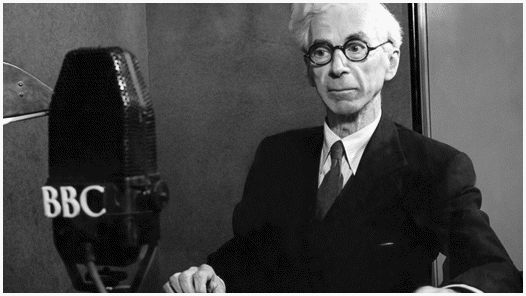Aristocracy

This was the England of espaliers and velvet lawns, of lord and servant. In these opening pages there are dizzying vistas of time. The reader of this review and the writer are, in the allowed sense of the word, contemporaneous with a man who silenced Browning at a dinner party and who, when left in tête-à-tête with William Gladstone, heard cascade upon him the dread pronouncement "This is very good port they have given me, but why have they given it me in a claret glass?" Those now living can seek out a man, still alert, whose servants and early acquaintances clearly remembered news of Waterloo.
This is startling enough in itself. But in Russell's case the fact that he came of age in a world almost totally vanished from our grasp, that he belonged to the most confident élite in modern history (the Whig aristocracy of Victorian England), is more than a virtuoso trick of long life. Russell is marked to the very limits of his later radicalism by his origins.
This memoir does nothing to soften his native hauteur. "But what can a charwoman know of the spirits of great men or the records of fallen empires or the haunting visions of art and reason?" he asked Gilbert Murray in 1902, and went on, "Let us not delude ourselves with the hope that the best is within the reach of all, or that emotion uninformed by thought can ever attain the highest level."
In February of 1904, Russell ventured "to a remote part of London" to lecture to the local Branch of the Amalgamated Society of Engineers. His comment at the time was characteristic: "They seemed excellent people, very respectable --- indeed, I shouldn't have guessed they were working men."
Russell grew into one of the genuine mutineers of modern history; his fusillades against capitalism, great-power politics, and the cant of the Establishment have been fierce and prolonged. Pity for the human condition has burned in him till it has all but consumed reason: "Children in famine, victims tortured by oppressors, helpless old people a hated burden to their sons, and the whole world of loneliness, poverty, and pain make a mockery of what human life should be." He has gone to prison, lost academic appointments, and risked ostracism on behalf of his outraged compassion.
But Russell's Jacobinism is high Tory; it springs from the certitude that birth and genius impose both the right and the obligation of moral precept. "Echoes of cries of pain reverberate in my heart," says Russell. One wonders whether he is not deceiving himself; the echo chamber lies higher, the pity, like Voltaire's, is cerebral.
Fundamentally, Russell's politics of protest seek to realize the hope, so articulate in the small, vibrant coterie of Apostles to which he belonged at Cambridge, that humanity might be elevated to a just plane of social and hygienic well-being so that the elect, the pursuers of beauty and truth, could fulfill their lives without bad conscience.
American democracy, argues Russell, is egalitarian and philistine. Thus, it has made room for neither intensity nor loftiness of feeling; "indeed, loftiness of feeling seems to depend essentially upon a brooding consciousness of the past and its terrible power." True politics are the art of securing elbowroom for the best; they will alienate the squalor in the world at large that embarrasses or dissipates the life of the mind. Russell's pity has often been sharp-edged, a weapon against those who would crowd too near his sensibility.
This aristocratic misericord and a betraying preference of the abstract over the disorder of the personal underlie the general tone of the Autobiography. They are explicit in what have rapidly become its two most notorious episodes. "I have sought love, first, because it brings ecstasy," writes Russell, "ecstasy so great that I would often have sacrificed all the rest of life for a few hours of this joy. I have sought it, next, because it relieves loneliness --- that terrible loneliness in which one shivering consciousness looks over the rim of the world into the cold unfathomable lifeless abyss."
The New Yorker
© 2009 New Directions